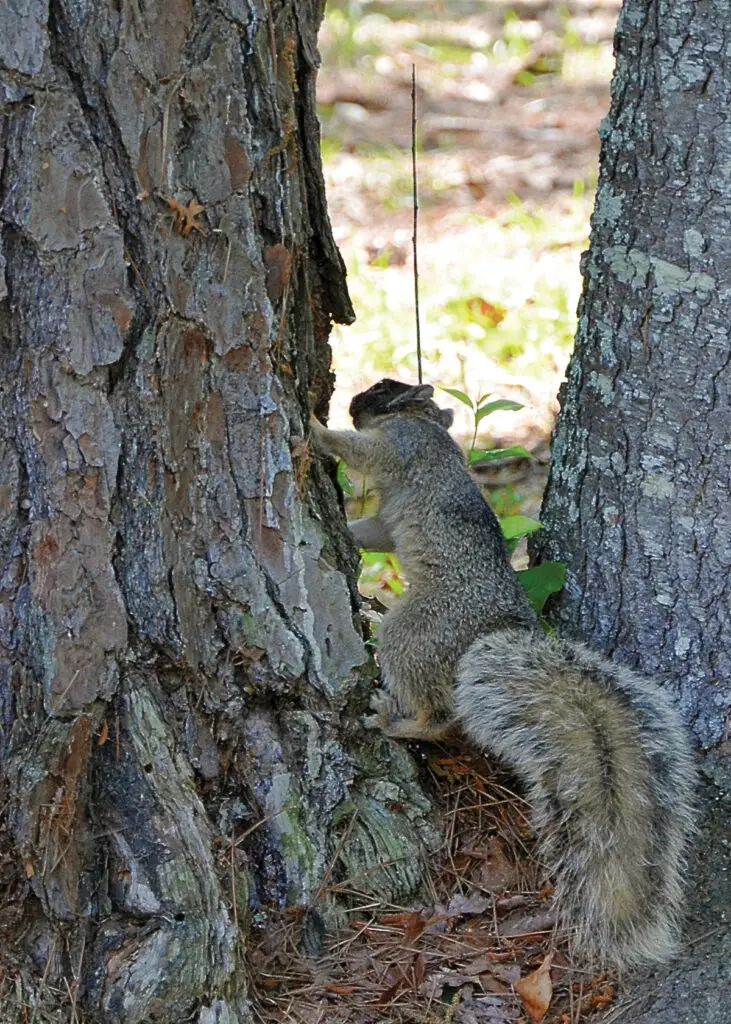Many youngsters, and even some adults who’ve never hunted before, will take to the woods for the first time this fall. Most usually follow a father, uncle, grandfather, other relative or a friend who can teach them what to do.
When hunting with youngsters, make it all about the children. Don’t expect them to act like Daniel Boone. They will make mistakes, but most people learn best by making mistakes. Don’t do everything for a child. Teach that child how to do things correctly. Then let the child do it, as long as it’s safe.
Make every outing interesting and enjoyable for young children. My dad always tried to turn any trip into an adventure. He explained the interconnected web of nature and took time to point out tracks and other signs. He taught us to identify birds and animals we spotted or heard, even if that meant taking home less game in the bag.

Photo by John N. Felsher
Dad always carried his gun, but seldom fired it when hunting with young children. He would much rather see a child shoot than for himself to take home with limit. However, Dad never compromised on safety. We never handled a gun without first checking to make sure it was unloaded until ready to hunt.
Start youngsters off with something active and easy for small sportsmen to do that will keep their attention. Young sportsmen quickly grow bored sitting for long periods or trying to stay still long enough to fool a deer or a gobbler. Opportunities for more advanced hunting will come later.
Squirrel hunting offers an outstanding opportunity to introduce youngsters to the sport. First comes learning how to spot the “gray ghosts of the forests.” Squirrels can quickly disappear in the branches, holes and foliage of big trees. The masters of concealment regularly fool even the most experienced woodsmen. For practice, take young sportsmen to a park. See how many squirrels the youngster can spot. Let the young woodsman try to sneak up on some squirrels as if hunting.
Of course, locating squirrels living in a wild forest requires higher skill levels than ones in a park. In good squirrel habitat, like a hardwood or mixed forest, cover ground slowly. Take a few steps. Then, stop to look and listen. Scan the trees for any movement or odd shapes on tree trunks and branches. Without making quick movements, advance a few more steps and stop again.
Hunters frequently hear squirrels long before they see them. Listen for the distinctive sound of claws scratching on rough bark, shaking branches or objects dropping to the ground. Squirrels often bark to proclaim their territory, usually a little later in the morning or in late afternoon.
Every few yards, find a fallen log or comfortable tree trunk and sit down. Remain still and quiet while scanning and listening. After a while, move a short distance and repeat. A good pair of binoculars helps spot well-concealed squirrels hiding in trees.
Squirrels don’t always stay in trees. Sometimes, they forage on the ground, especially later in the season. Listen for them scampering over leaves. An experienced hunter can identify those sounds to a youngster. People not familiar with such sounds might listen to recordings on the internet.
Squirrel hunting in pairs or teams allows socialization, creating an excellent way to introduce children to the sport and build lasting bonds. Alerted squirrels habitually put tree trunks, large branches or other cover between themselves and hunters. However, smart sportsmen can take advantage of a squirrel’s innate curiosity.
When a squirrel hides, the more experienced hunter could walk around the tree making noise while the youngster remains in place and keeps quiet. The squirrel will naturally focus on the moving person and try to hide from that individual. That might prompt the squirrel to move slightly, giving away its position. That squirrel might jump to a spot that offers the youngster an excellent shot.
The Alabama squirrel season runs from Sept. 9 to March 3, 2024, with a limit of eight per day. Any public hunting areas with hardwood trees should hold good squirrel populations. Some better state wildlife management areas for squirrels include Barbour, Black Warrior, David K. Nelson, Freedom Hills, James D. Martin-Skyline, Lowndes, Oakmulgee, Red Hills and the Upper Delta. Sportsmen can also apply to hunt several small Special Opportunity Areas.
Find some time to take a child hunting this season. For more information on public places to hunt, see outdooralabama.com/hunting/where-hunt-alabama.




